Response to TCFD Recommendations
Climate change is one of the most important social issues facing society, and we recognize that it is also an important management issue for our company, and in March 2023, we expressed our support for the TCFD (Task Force on Climate-related Financial Disclosure) recommendations.
To realize a sustainable society, we will make steady progress in addressing climate change and actively disclose information on our efforts in line with TCFD recommendations.
Governance
Sustainability Management of IMASEN
In its medium- to long-term management plan (2021-2029), Minebea aims to strengthen its management foundation by promoting ESG management, and is promoting sustainability activities under the ISP2030 (IMASEN Sustainable Plan 2030).
We strive to contribute to a sustainable society and achieve sustainable business growth by identifying and incorporating material issues from among various social issues, including the SDGs, and issues specific to our company, into our management.
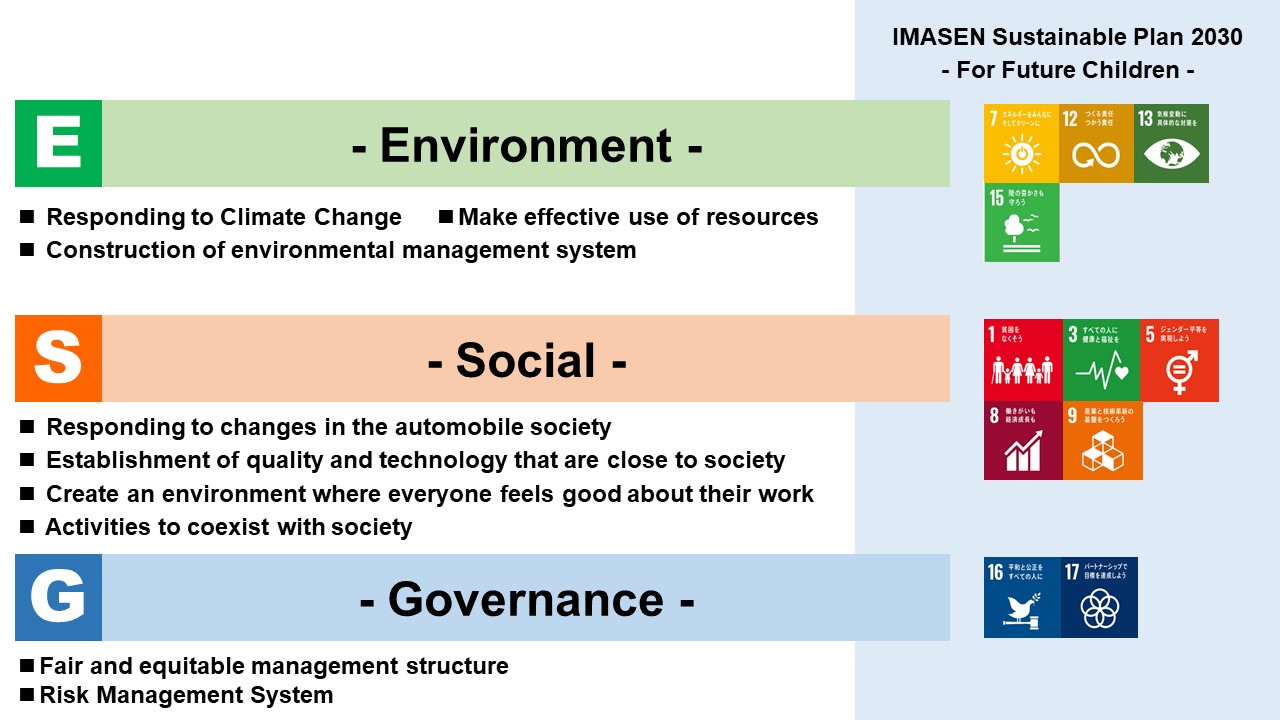
Organizational Governance
In addition to the Risk Management Committee, which deliberates and decides on company-wide risks, we have established the ISP2030 Committee, a specialized committee to promote sustainability activities.
In principle, this committee meets three times a year. The committee is chaired by the President and comprises full-time directors, and deliberates on sustainability-related risks and opportunities, including climate-related issues.
The committee discusses climate-related and other sustainability risks and opportunities. The committee reports its deliberations to the Board of Directors for management oversight.
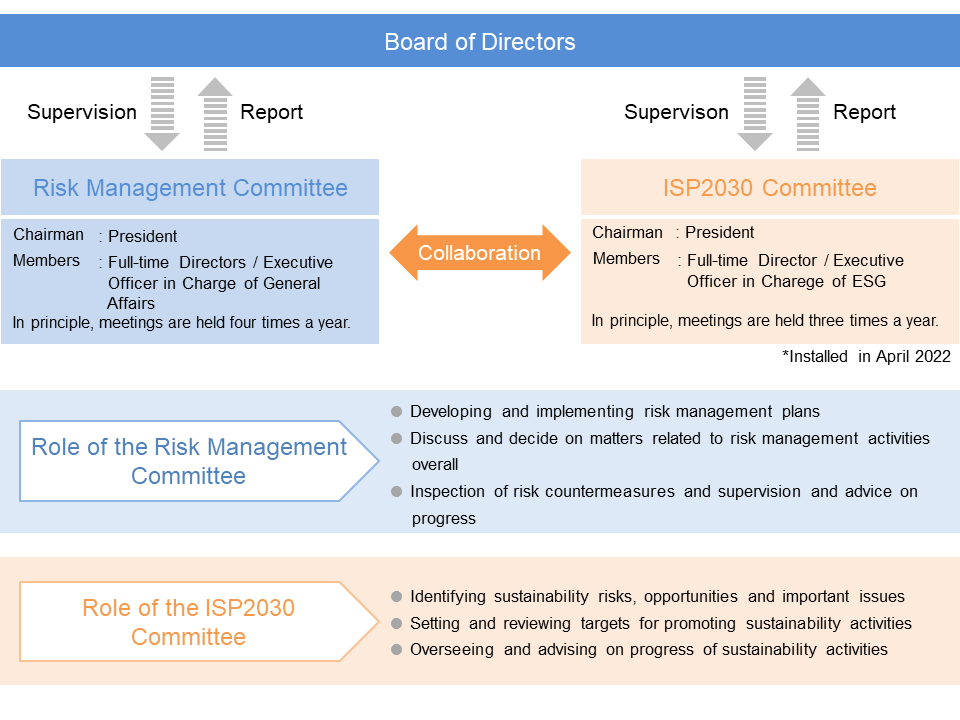
Strategy
The emergence of climate change poses both a risk to our business development and an opportunity to contribute to society by creating new businesses that respond to a decarbonized society. In considering our response to climate change, we have identified risks and opportunities for our core automotive business, considering scenarios from the Intergovernmental Panel on Climate Change (IPCC) and the International Energy Agency (IEA).
Risks/opportunities in the transition to a low-carbon society under the 2°C scenario and physical risks from climate change under the 4°C scenario were identified.
Below 2°C scenario: Scenario that keeps temperature rise below 2°C under sustainable development
4°C Scenario: Maximum emissions scenario without climate policy under fossil fuel dependent development
[Identification of Risks and Opportunities Assuming the Year 2030 and Our Response to Them]
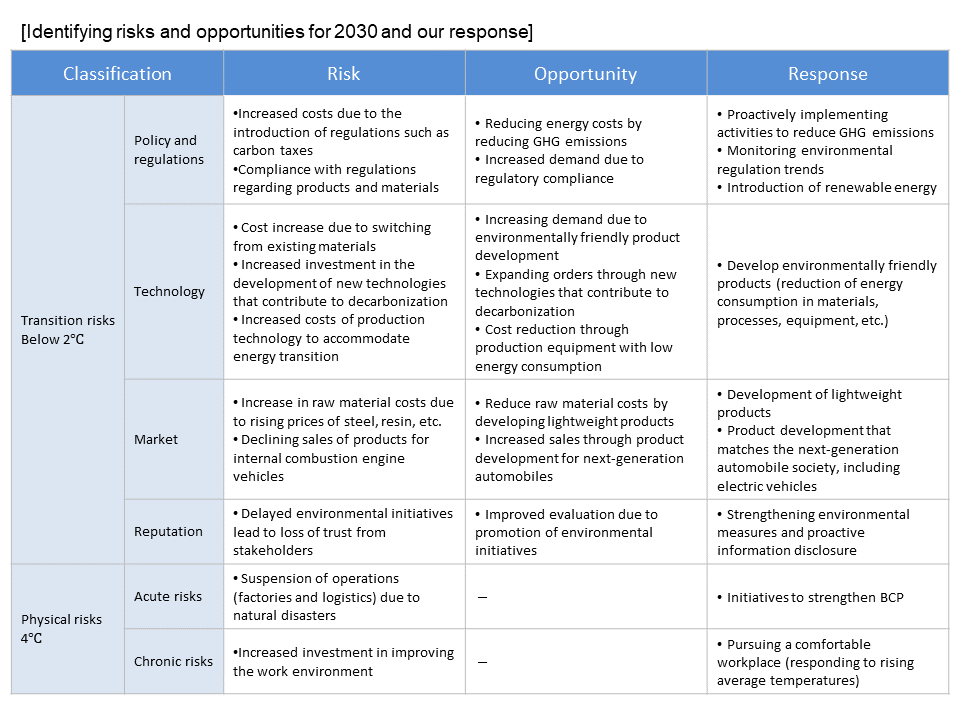
Risk management
Our business activities are based on ESG management, and we are working to contribute to solving social issues. With regard to climate change, the ISP2030 Committee, a specialized committee for promoting sustainability activities, deliberates on the identification of risks and opportunities and the progress of activities.
In addition, the Risk Management Committee deliberates and decides on matters related to our overall business activities and checks the content and progress of countermeasures for major risks. We manage risk through these committee activities.
Indicators and Targets
In order to achieve the ideal state set forth in ISP2030, we are working to set targets.
In response to climate change, we aim to achieve carbon neutrality by 2050, and have set milestones for Phase 1 (2021-2023), Phase 2 (2024-2026), and Phase 3 (2027-2029) in accordance with our medium- to long-term management plan. The goal is to achieve a 50% reduction in CO2 emissions by 2030. (compared to FY2013 Scope 1,2)
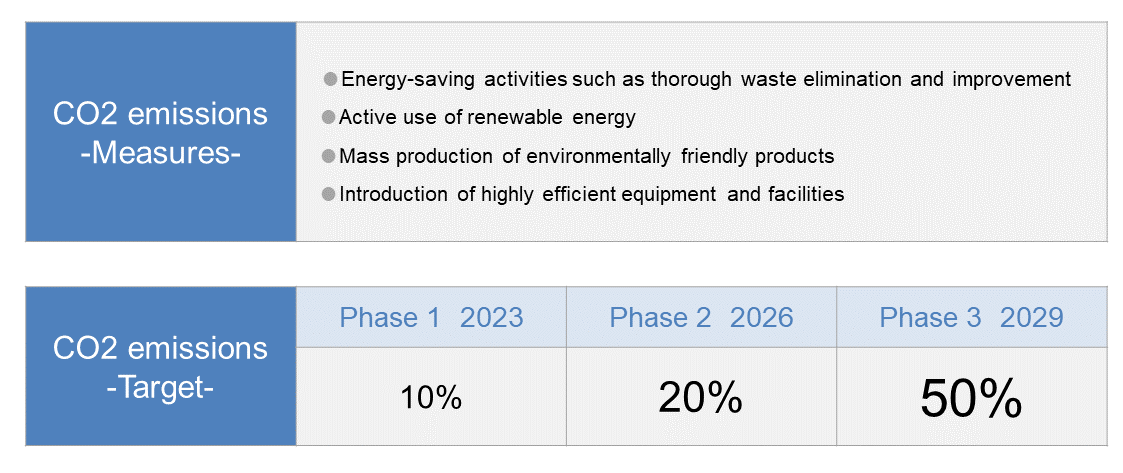
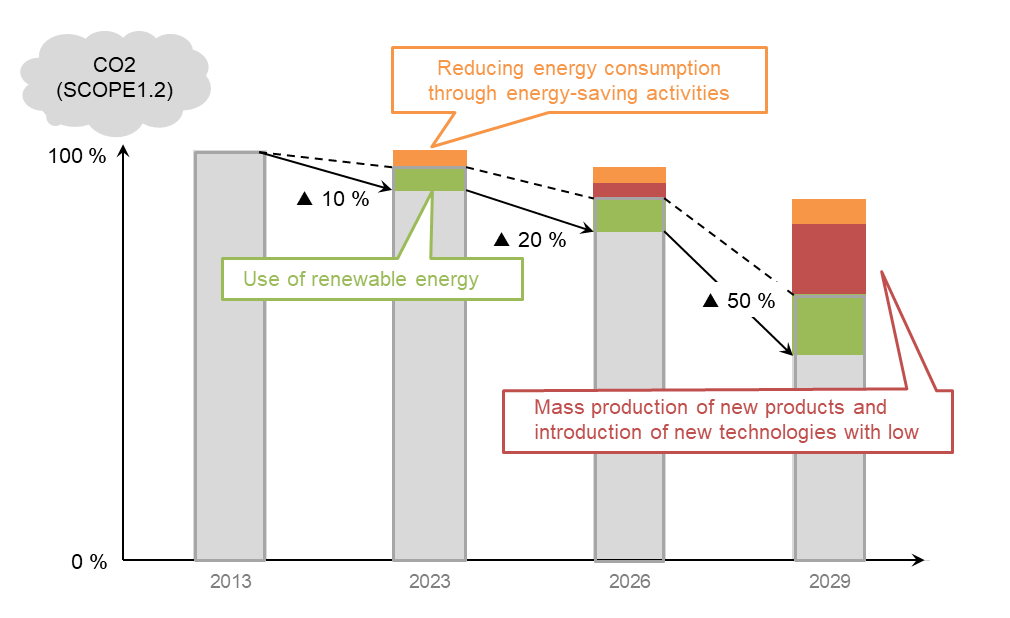
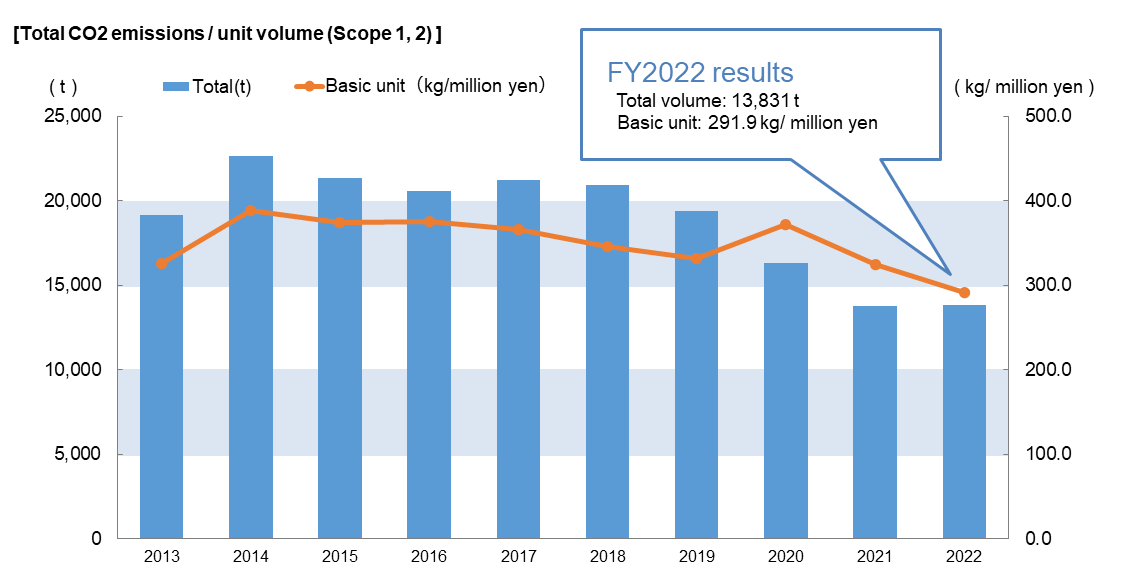
Activities contributing to the realization of a decarbonized society
We have established and obtained ISO 14001 environmental management system certification for our head office and all plants. We are actively addressing climate change through energy-saving activities and the introduction of renewable energy. Renewable Energy Introduced solar power generation at Gifu Plant (equivalent to approximately 20% of the plant’s electricity consumption) Energy conservation activities Introduction of LED lighting/improvement of manufacturing process efficiency Development of environmentally friendly products Contributes to reduced energy use by reducing weight, thereby improving fuel/electricity consumption
[Photovoltaic power generation system (Gifu plant)]
